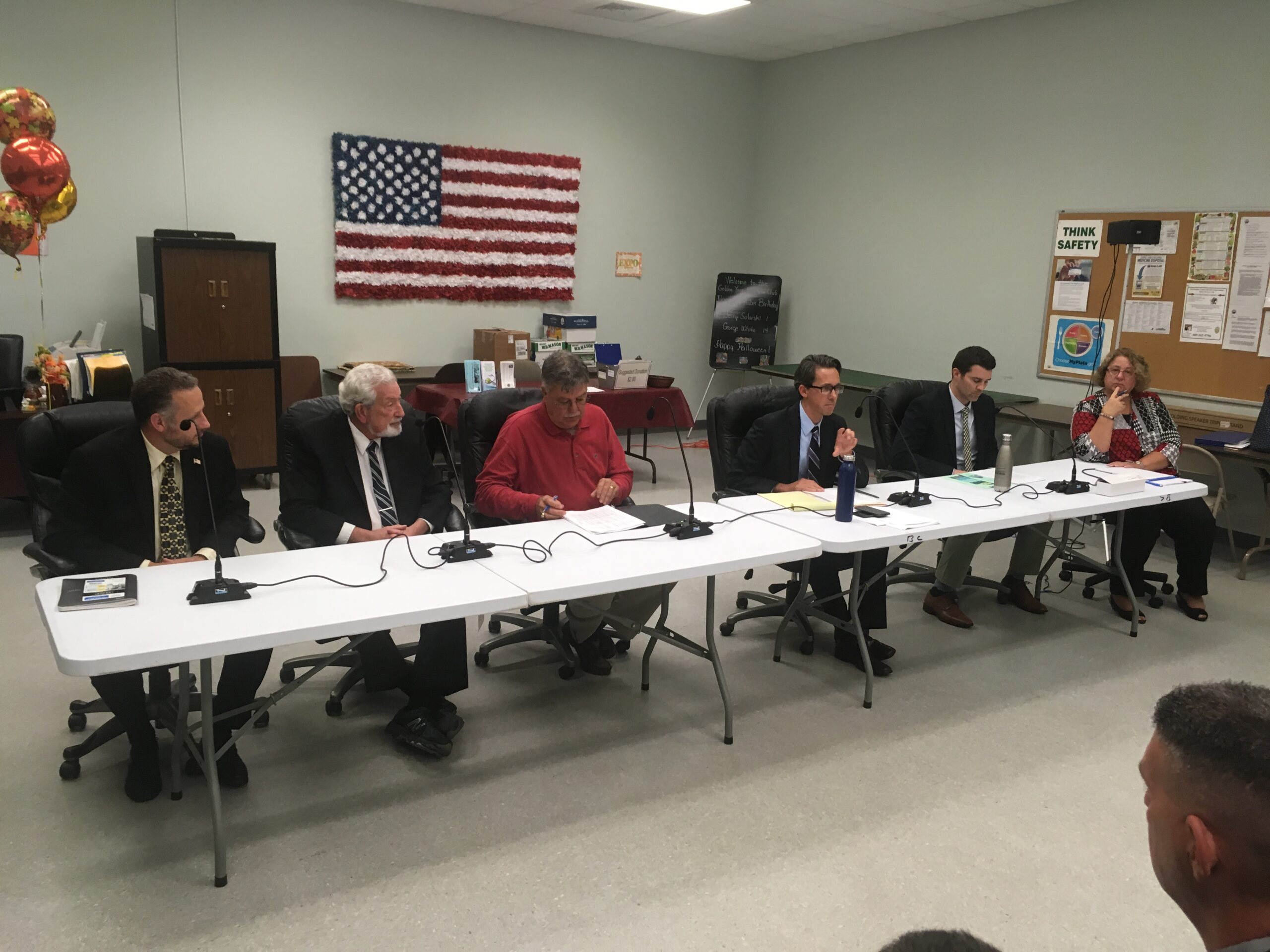Sitting before a packed room of concerned residents, officials from both Bordentown Township and Bordentown City commiserated over recent reports of high lead levels in some homeowners’ drinking water during a recent public forum on the issue.
The forum, held at the city’s Carslake Community Center on Oct. 15, was organized following recent reports of lead exceedances in the drinking water of numerous Bordentown homes.
For City Commissioner Joe Myers, the forum’s intent was to ensure residents were aware of the issue and that the respective municipalities were monitoring the situation.
“Nothing is more important to the township and the city than the health and safety of our residents,” said Myers. “We take this municipal service extremely seriously. We’re committed to it, and we’re looking at a comprehensive data-driven approach to studying and examining this issue.”
As the city works to address this issue and the immediate concerns of the public, Myers announced that the city is currently in the process of testing and collecting data to determine the main cause of the problem.
Myers said the city has since worked with its professional team and the New Jersey Department of Environmental Protection (NJDEP) to develop a corrective action plan, which includes four components: transparency, testing, education and equipment.
As part of enacting this plan, Myers said the city has not only made continuous efforts to educate and inform the public on this issue. He also said the NJDEP conduct a recent inspection of its service line and water main records maintained by the city dating back to 1960. According to Myers, the state’s findings revealed “no known lead service lines.”
Meyers also mentioned that recent improvements and upgrades were underway to the city’s existing water treatment plant to insure the distribution of safe drinking water to all households and businesses throughout its service area.
As of May, the city’s water engineer began working with the NJDEP on a plan to implement a corrosion control treatment plan. In June, an Optimal Corrosion Control Treatment plan was submitted for approval, meeting standards as set by the EPA and enforced by the NJDEP.
Myers said once the city received approval for this plan, it moved to implement it immediately.
“The big thing we want to do is see how the addition of the orthophosphates and the usage of the new pH equipment is working,” said Myers. “The other thing is that I want to collect all the data. I want to be able to look at this and plot it – and be able to say, ‘Okay, this is where we’re providing water. This is where we sampled. This is where the exceedances were, and are there any consistencies?’”
At the moment, the state has reported no lead exceedances from the city’s water source and distribution service lines, so the city is currently working to collect data from residents to determine if this issue stems from the internal plumbing of homeowners.
“Out of all the samples we have collected so far, we want to see if there are clusters [in an area],” said Myers. “As of right now, we do not see clusters in one specific neighborhood or one part of the township or city.”
Until the source of these lead exceedances in homes is determined, Myers strongly requests that Bordentown residents have their water tested by the city to ensure their water is safe, but to help collect information and further examine this issue.
“The thing we owe the public is to get more information on stuff that’s going on inside their home,” Myers added. “I want to make sure that if there’s people who have questions on interior plumbing and testing, we’ll be more responsive to that. We want to be able to provide them with more information and what we can do.”

